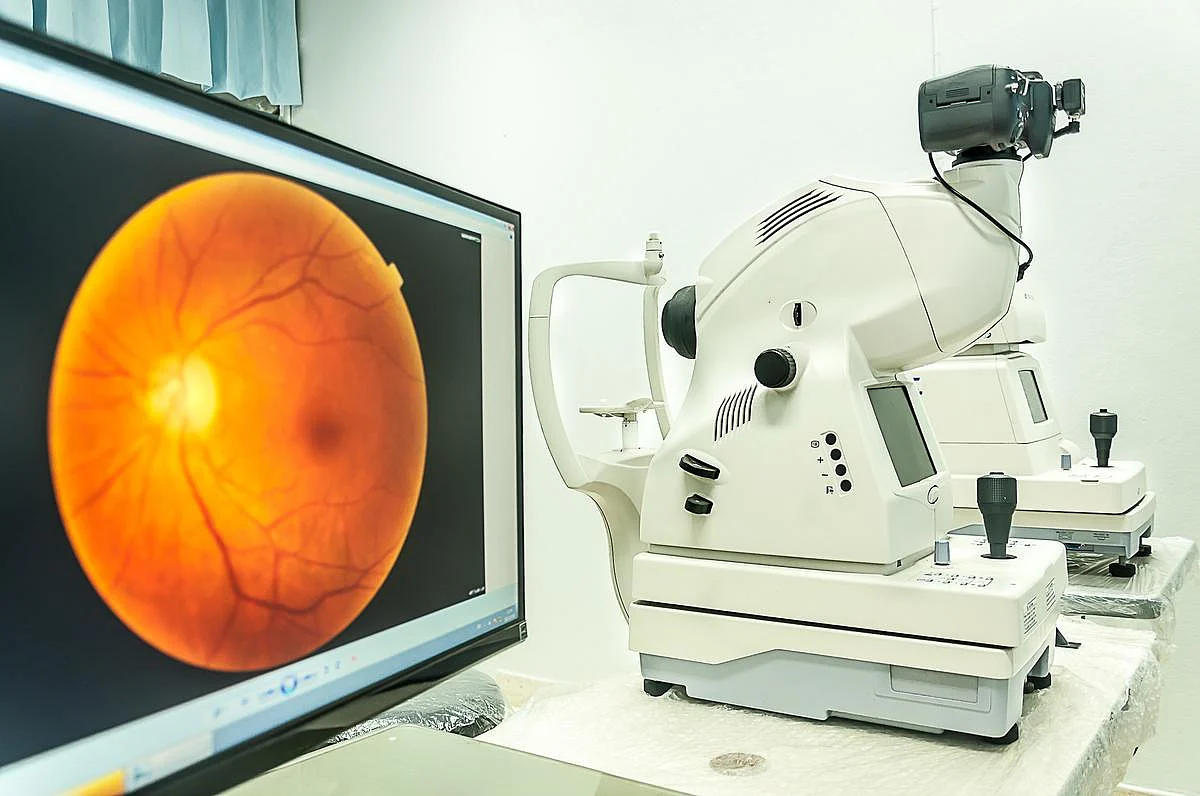Reduced ellipsoid zone area seen with revakinagene taroretcel compared with sham procedure
By Elana Gotkine HealthDay Reporter
MONDAY, Aug. 11, 2025 (HealthDay News) — For patients with macular telangiectasia type 2 (MacTel), revakinagene taroretcel (NT-501), an encapsulated cell therapy producing ciliary neurotrophic factor, results in reduced ellipsoid zone area (EZA) loss over 24 months compared with sham procedures, according to a study published in the August issue of NEJM Evidence.
Emily Y. Chew, M.D., from the National Institutes of Health in Bethesda, Maryland, and colleagues examined the efficacy and safety of NT-501 in MacTel in two identically designed phase 3, multicenter randomized controlled trials (NTMT-03-A and NTMT-03-B). The rate of change in EZA (photoreceptor) loss over 24 months was the primary end point.
The researchers found that the adjusted rates of change of EZA loss were 0.075 and 0.166 mm2/24 months in the NT-501 and sham groups (58 and 57 participants), respectively, in NTMT-03-A, with a between-group difference of −0.091 mm2/24 months. In NTMT-03-B, the rates of EZA loss were 0.111 and 0.160 mm2/24 months in the NT-501 and sham groups (59 and 54 participants), respectively, for a difference of −0.049 mm2/24 months. In the trials, changes in retinal sensitivity and reading speed were inconsistent between the groups. Overall, 17 and 14 percent of participants receiving NT-501 in the NTMT-03-A and NTMT-03-B trials, respectively, had miosis compared with none in the sham groups.
“The consistency in preserving retinal cells across both trials gives us confidence in the mechanism,” coauthor Martin Friedlander, M.D., Ph.D., from the Scripps Research Institute in San Diego, said in a statement. “As we refine how and when to treat MacTel, we expect even greater improvements in vision over time.”
One author disclosed ties to biopharmaceutical companies, including Neurotech, which is developing NT-501 and funded the study.
Copyright © 2025 HealthDay. All rights reserved.








